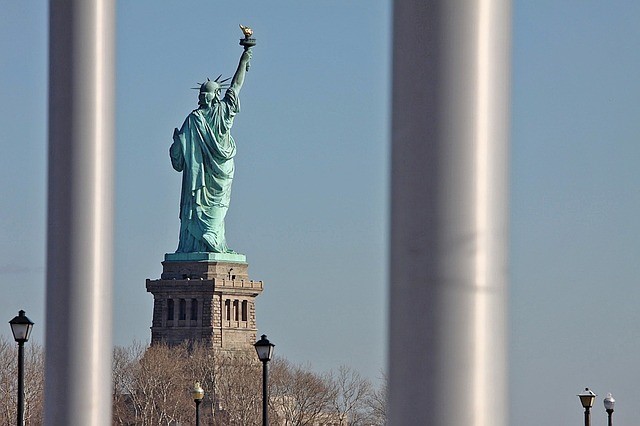
NEW JERSEY – A U.S. District Judge has issued a temporary restraining order preventing a group of Indonesians currently in the United States and scheduled for deportation time to legally fight their deportation. The ruling was granted following a lawsuit initiated by the ACLU.
The Indonesians, who are currently “on release,” have sought relief because they are Christians and would be subject to persecution if returned to their home country. Although Christians comprise 18.8 percent of the Indonesian population, over a thousand churches there were closed between 2006 and 2014 and persecution of Christians seems to be increasing.
The issue in the muddied waters of U.S. immigration policy is whether the men should be deported or allowed to remain in the United States on a permanent basis.
The Status of Release
“Most of the endangered immigrants are among a group of 2,000 . . . who fled violence in their home country two decades ago.” Although headlines have been focused primarily on a handful who recently sought refuge in churches, there are about 100 who may potentially be affected.
The plaintiffs have been living in the U.S. “on release.” This means that they had, at one time, been detained. How and why these individuals were initially detained is unclear. However, many of these cases begin with a foreign national seeking asylum at a port of entry without proper legal documentation. Detention is the usual outcome of such arrival.
Release is a potential determination following detention. Release is available at the discretion of the authorities if all following six factors are determined to be applicable.
- Travel documents for the alien are not available or, in the opinion of the Service, immediate removal, while proper, is otherwise not practicable or not in the public interest;
- The detainee is presently a non-violent person
- The detainee is likely to remain nonviolent if released;
- The detainee is not likely to pose a threat to the community following release;
- The detainee is not likely to violate the conditions of release; and
- The detainee does not pose a significant flight risk if released.
Individuals on release must meet specific conditions, including reporting to a specified officer periodically and providing written notice of change of address to the Department of Homeland Security. It is possible that these men may have failed to follow these or other specified requirements, leading, therefore, to government agents seeking their deportation.
The Status of Asylum
It is likely that the Indonesians will seek asylum status at this point. That is a process that will require additional time and expert legal assistance. There is a tendency for foreign nationals to overstay temporary visas and, in this case, to become comfortable in a release program to the extent that they just ignore the rule of law.
The issue at stake is not one merely about the rule of law. Nor is it only about compassion. This is where the U.S. immigration system is so widely misunderstood. Some argue for the legal side; others for compassion. The system, as best as systems can, considers both. The judge’s ruling demonstrates that.
“Asylum may be granted to persons who are already in the United States, and who are unable or unwilling to return to their home country because of persecution or a well-founded fear of persecution because of race, religion, nationality, membership in a particular social group, or political opinion.”
Application for asylum after a foreign national is in the U.S. is referred to as defensive asylum. The process is conducted in an immigration court. This is where compassion and the legal system join hands.
Our immigration system allows for the legal protection of the persecuted. It even creates opportunities for legal immigrants. These Christian men have been permitted to work in release. If they are granted asylum, they will be allowed to remain in the U.S. under a different status, and that right to employment will be restored.
District Court Judge Patti Saris said “This is a hard case. These are good and decent people who have stayed here with our blessing and were given work authorization.” She added, “A brief delay in unlawful deportation of residents who have lived here with government permission for over a decade outweighs the public interest in prompt execution of removal orders, where petitioners have been law-abiding and pose no threat to public safety.”
Gospel for Asia (GFA) encourages Christians to pray for a right outcome for these people who, almost certainly, would be subject to persecution if returned to their home country. The World Watch List ranks Indonesia 38th among countries where persecution of Christians is high. The leading cause of persecution there is growing Islamic oppression.
Sources:
- NBC News, Fearing deportation, Indonesian men seek sanctuary in church, January 29, 2018
- NBC News, Judge grants Christian Indonesians in New Jersey time to fight deportation, February 5, 2018
- U.S. Citizenship and Immigration Services, Conditions of release after removal period, Section 241.1 and 241.5
- Evangelical Focus, Chinese Christians help growth of evangelical churches across Southeast Asia
- Evangelical Focus, Muslim extremists increase pressure on Indonesian Christians
- ACLU-NJ, Copy of United States District Court, District of New Jersey ruling, Civil Action No. 18-1510
- Christianity Today, Judges: ICE Can’t Deport 100 Christians to Indonesia (Yet)
- Reuters, U.S. judge wrestles with issue of Indonesian immigrants




